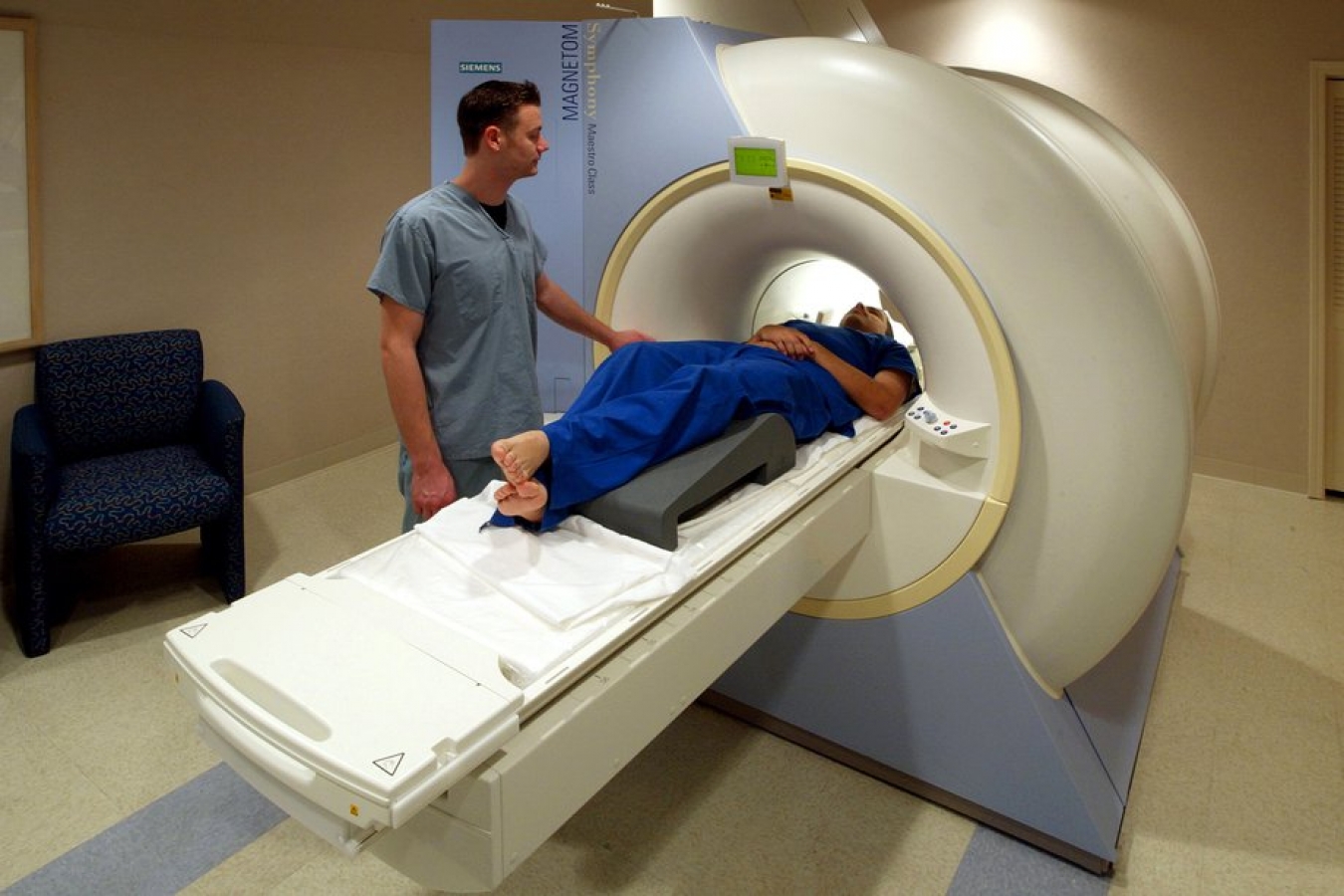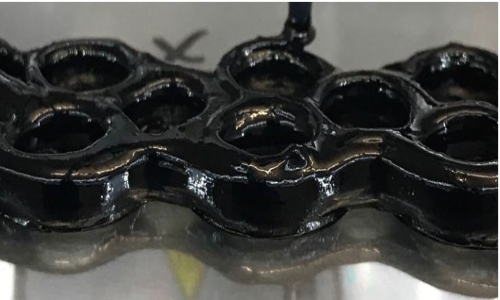

 3:17:29
3:17:29  2019-12-04
2019-12-04  974
974

MRI scans may be able to detect physical and functional changes in the brain that could be markers for major depression.
Two new studies presented at the annual meeting of the Radiological Society of North America (RSNA) may also point to new pathways for future research and therapy.
Researchers, led by Kenneth Wengler, PhD, a postdoctoral researcher at Columbia University in New York, say they discovered that people with major depression have less water move across their blood-brain barrier, particularly in the amygdala and the hippocampus, than those who didn’t have major depression.
The new biomarker for depression was discovered using an MRI technique, developed by Wengler and colleagues at the Renaissance School of Medicine at Stony Brook University in New York, called intrinsic diffusivity encoding of arterial labeled spins (IDEALS).
“We observed disruption of the blood-brain barrier in gray matter regions known to be altered in major depressive disorder,” Wengler said in a press statement.
Welcome to the connectome
In the second study, scientists used MRI techniques to look for depression-related abnormalities in the connectome — the web of neural connections in the brain.
Researchers from the Image Display, Enhancement, and Analysis (IDEA) group at the University of North Carolina (UNC) say that people with major depression had abnormal patterns of excitation and inhibition at the dorsal lateral prefrontal cortex of the brain.
This part of the brain helps govern cognitive control. This includes the regulation of the amygdala, which is involved in expression of emotion.
“This suggests that control functions in [major depressive disorder] are impaired, which may lead to elevated responses in the amygdala, resulting in increased anxiety and other negative moods,” Guoshi Li, PhD, a research associate at UNC and study co-author, said in a press statement.
The finding supports the longstanding theory that malfunctioning control over the amygdala could result in depressive symptoms.
The UNC study also found that recurrent excitation in the thalamus, an area of the central brain that’s also responsible for emotional regulation, was abnormally elevated in people with major depression.
The UNC researchers used functional MRI (fMRI) scans and a new multiscale neural model inversion framework that looked at the brain’s microscopic circuitry in context with its larger-scale interactions.
“This method allows us to identify impaired connectivity within each brain region, making it a potentially more powerful tool to study the neuromechanism of brain disorders and develop more effective diagnosis and treatment,” Li said.
Better understanding the brain
Neither study has been published yet in a peer-reviewed journal, but experts say the results are promising.
“Psychiatric disorders such as depression aren’t associated with radiologically visible lesions on structural MRI [such as those indicative of a stroke], but more advanced MRI methods capable of measuring brain physiology are starting to show promise,” John A. Detre, MD, professor of neurology and radiology and founding director of the Center for Functional Neuroimaging at Penn Medicine, told Healthline.
“If validated, these methods can be used to better understand and differentiate the mechanisms underlying psychiatric disorders, evaluate treatment effects, and ultimately facilitate clinical diagnosis and management,” he said.
Major depression is both common and can be severe.
About 7 percent of people in the United States, or about 17 million adults, have had at least one major depressive episode in their lifetime.
Symptoms include feelings of hopelessness, diminished interest in daily activities, and fatigue.
But understanding the brain changes associated with major depression is limited.
“Unfortunately, with current treatments, there is a large chance of relapse or recurrence,” Wengler said. “To develop new, more effective treatments, we must improve our understanding of the disorder.”
The wave of the future
David Feifel, MD, director of the Kadima Neuropsychiatry Institute in La Jolla, California, told Healthline that MRI and other forms of brain imaging are widely viewed as playing a major role in the future of psychiatry “in the diagnosing of major depression and picking out the right treatment for patients.”
“However, right now its biggest utility is to help us understand the parts of the brain that aren’t functioning the right way in people with depression,” he said.
Some imaging studies have preliminarily associated certain patterns of change with more optimal forms of treatment, Feifel says.
But he cautioned: “People get deceived by some psychiatrists who tell them that they can take an image of their brain and tell them what disease they have and what medications they need. I don’t think anyone doubts that will be true in the not so distant future, but it isn’t true now.”
Imaging has driven major advances in the understanding of how depression affects the brain, Ben Spielberg, the founder and CEO of TMS and Brain Health, a treatment program in Santa Monica, California, told Healthline.
PET scans were the first to show metabolic changes in the prefrontal cortex among people with depression. Later, MRIs revealed that people with depression had a hippocampus volume 10 percent lower than people who didn’t have depression.
“That’s a pretty substantial impairment,” Spielberg said.
Functional MRI scans have revealed overactivity in the subgenual anterior cingulate cortex, a part of the brain involved in feelings of sadness.
TMS: An alternative to treating depression
Transcranial magnetic stimulation (TMS) is a noninvasive form of depression treatment based on this research.
Approved by the Food and Drug Administration in 2008, TMS creates a localized magnetic field that depolarizes neurons in the left prefrontal cortex.
This reactivates parts of the brain subdued by depression, allowing the prefrontal cortex to resume its role in regulating other parts of brain affected by the condition.
TMS is used for cases of depression that don’t respond to treatment with SSRI antidepressant drugs or cognitive behavioral therapy.
Both of the new studies were relatively small in scale.
Wengler’s research focused on a group of 14 people with major depression and a control group of 14, while the study from Li and colleagues involved 66 adults with major depression and 66 “healthy controls.”
Reality Of Islam |
|

Electronic wearabl
 9:3:43
9:3:43
 2018-11-05
2018-11-05
10 benefits of Marriage in Islam
 7:5:22
7:5:22
 2019-04-08
2019-04-08
benefits of reciting surat yunus, hud &
 9:45:7
9:45:7
 2018-12-24
2018-12-24
advantages & disadvantages of divorce
 11:35:12
11:35:12
 2018-06-10
2018-06-10
 6:0:51
6:0:51
 2018-10-16
2018-10-16
 2:33:4
2:33:4
 2023-02-15
2023-02-15
 10:55:53
10:55:53
 2022-06-13
2022-06-13
 9:50:37
9:50:37
 2023-02-28
2023-02-28
 7:45:39
7:45:39
 2018-06-21
2018-06-21
 4:2:19
4:2:19
 2022-10-10
2022-10-10
 2:42:26
2:42:26
 2023-02-02
2023-02-02
 4:26:43
4:26:43
 2022-02-21
2022-02-21
 5:41:46
5:41:46
 2023-03-18
2023-03-18
| LATEST |